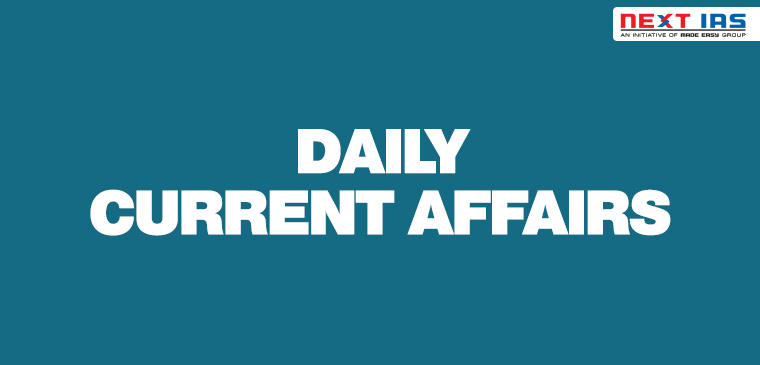
In News
Recently, the Delhi High Court (HC) has asked the Ministry of Home Affairs (MHA) to consider a few changes regarding the Foreign Contribution Regulation Act (FCRA).
About FCRA
- It was first enacted in 1976 and was amended in 2010 and 2020.
- It is a law enacted by Parliament to regulate foreign contribution (especially monetary donation) provided by certain individuals or associations to NGOs and other organizations within India.
- It falls under the purview of the MHA.
- Objective: To prevent the use of foreign contribution or foreign hospitality for any activity detrimental to the national interest.
- Exemption: Section 50 of the Act allows the Central government to issue orders exempting any organisation (apart from political parties) from the provisions of FCRA if it feels it necessary or expedient in the public interest, subject to conditions specified in the order.
- Latest Amendments
- In 2019, the MHA amended FCRA rules where it said that even persons prohibited to receive foreign funds such as journalists, politicians, members of the judiciary “are allowed to accept foreign contributions from their relatives” if the amount does not exceed Rs. 1 lakh.
- MHA needs to be informed for any such transaction above Rs. 1 lakh.
- In September 2020, Section 17 of the Act was amended and a new provision was inserted.
- It made it mandatory for all NGOs to receive foreign funds in a designated bank account at the New Delhi branch of the State Bank of India.
- Also, the deadline for applying for opening such an account was 1st April 2021.
- In 2019, the MHA amended FCRA rules where it said that even persons prohibited to receive foreign funds such as journalists, politicians, members of the judiciary “are allowed to accept foreign contributions from their relatives” if the amount does not exceed Rs. 1 lakh.
- In January 2021, MHA laid down new guidelines for banks on FCRA rules.
- Donations are given in Indian rupees (INR) by any foreigner/foreign source including foreigners of Indian origin like Overseas Citizen of India (OCI) or Persons Of Indian Origin (PIO) cardholders should also be treated as foreign contributions.
- Foreign contribution has to be received only through banking channels and it has to be accounted for in the prescribed manner.
- Any violation by the NGO or by the bank may invite penal provisions of The FCRA, 2010.
- NGOs have to inform the Ministry about suspicious activities of any donor or recipient and take due diligence of its employees at the time of recruitment.
Current Issue and Concerns
- Two NGOs operating out of Telangana and Andhra Pradesh claimed facing difficulties in opening the FCRA account and in the subsequent approval from the MHA.
- Although both of them have opened their respective FCRA accounts, they are awaiting approval from the Ministry on the FC6 form, which has not been processed by the MHA yet.
- The Form FC-6 is filled up for a yearly account of foreign contribution received and utilised and is provided by the Foreigners Division of MHA.
- Hence, they filed petitions relating to the opening of FCRA accounts and have also sought to extend the deadline by a period of six months.
Delhi HC’s Stand
- The court highlighted that several organisations, including other NGOs, have been approaching it with regard to the opening of their FCRA accounts and the approvals.
- It has asked the Ministry to extend the 1st April deadline in view of the Covid-19 pandemic.
- It has also asked the Ministry whether it could allow NGOs, which have not been able to open FCRA accounts, to receive foreign contributions, as long as they maintain records of the same, in accordance with the provisions of the Act.
- It has also directed the MHA to process the documents and grant the approval, if there are no defects, by the next date of hearing.
- It clarified that the amendment to Section 17 is not under challenge in these petitions.
Other Related Issue
- Earlier, the National Association of Software and Service Companies (NASSCOM) highlighted that many countries and global companies are providing aid to India but the amended provisions of the FCRA Act 2020 are proving to be a deterrent.
- NASSCOM is an Indian non-governmental trade association and advocacy group focused mainly on the Information Technology and Business Process Outsourcing industry.
- It was established in 1988 and is a non-profit organisation.
- At the beginning of May 2021, the government permitted imports without GST levies for pandemic relief material donated from abroad for free distribution in the country, delegating States to certify the entities that will receive such imports.
- However, no exemption has been granted from the FCRA norms that require domestic entities receiving foreign aid to get approval from MHA.
- The amendments also prohibit entities receiving foreign contributions from transferring those to any other person, so even entities registered under the FCRA for providing healthcare support, are unable to pass on the relief material to patients or smaller NGOs.
- It urged the Prime Minister of India to temporarily relax stringent FCRA norms to ease the flow of overseas Covid-19 relief into the country.
- The temporary waiver will enable NGOs to transfer funds between FCRA-approved NGOs and non-FCRA approved NGOs.
Source: TH
Previous article
BRICS Employment Working Group Meeting
Next article
Facts in News